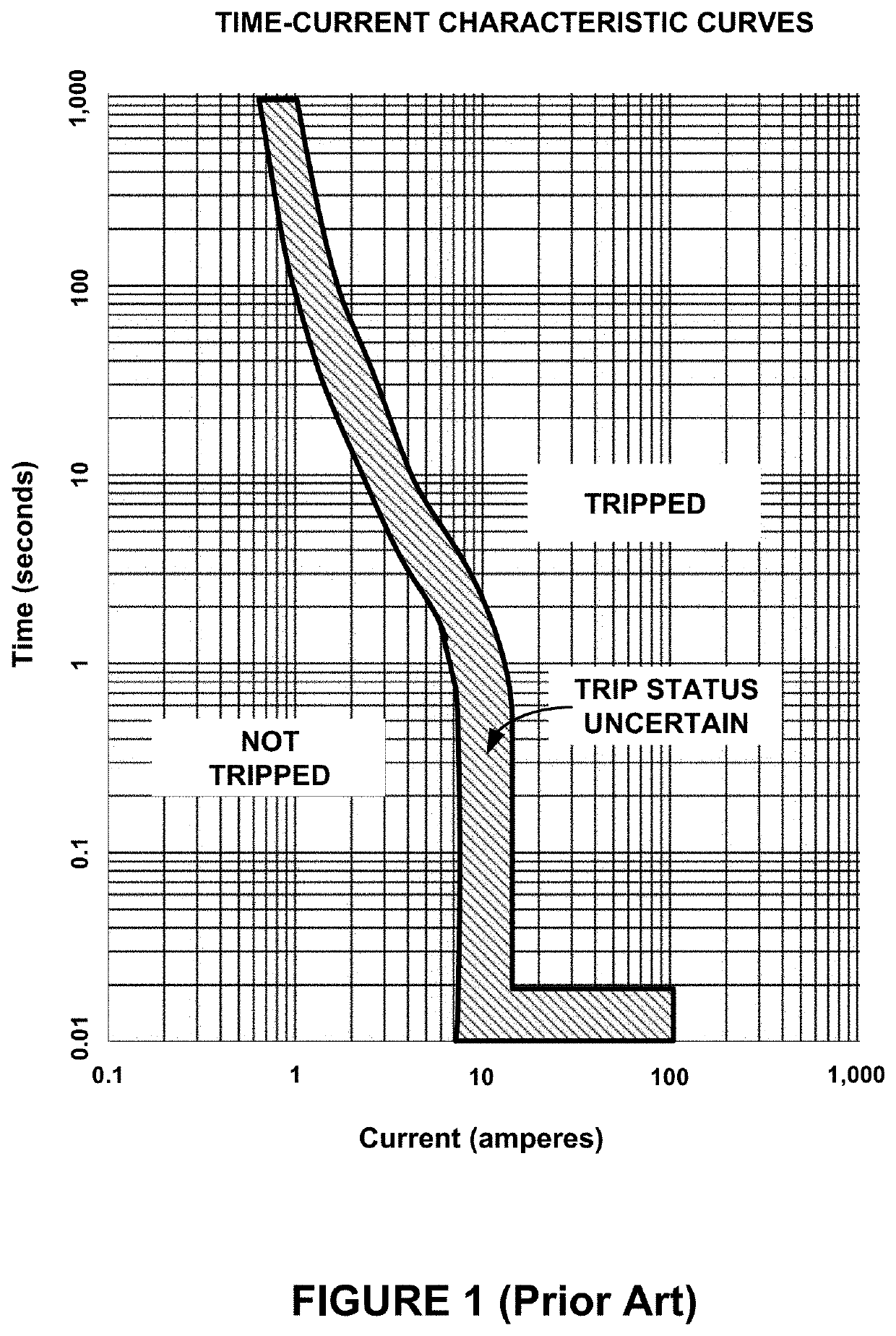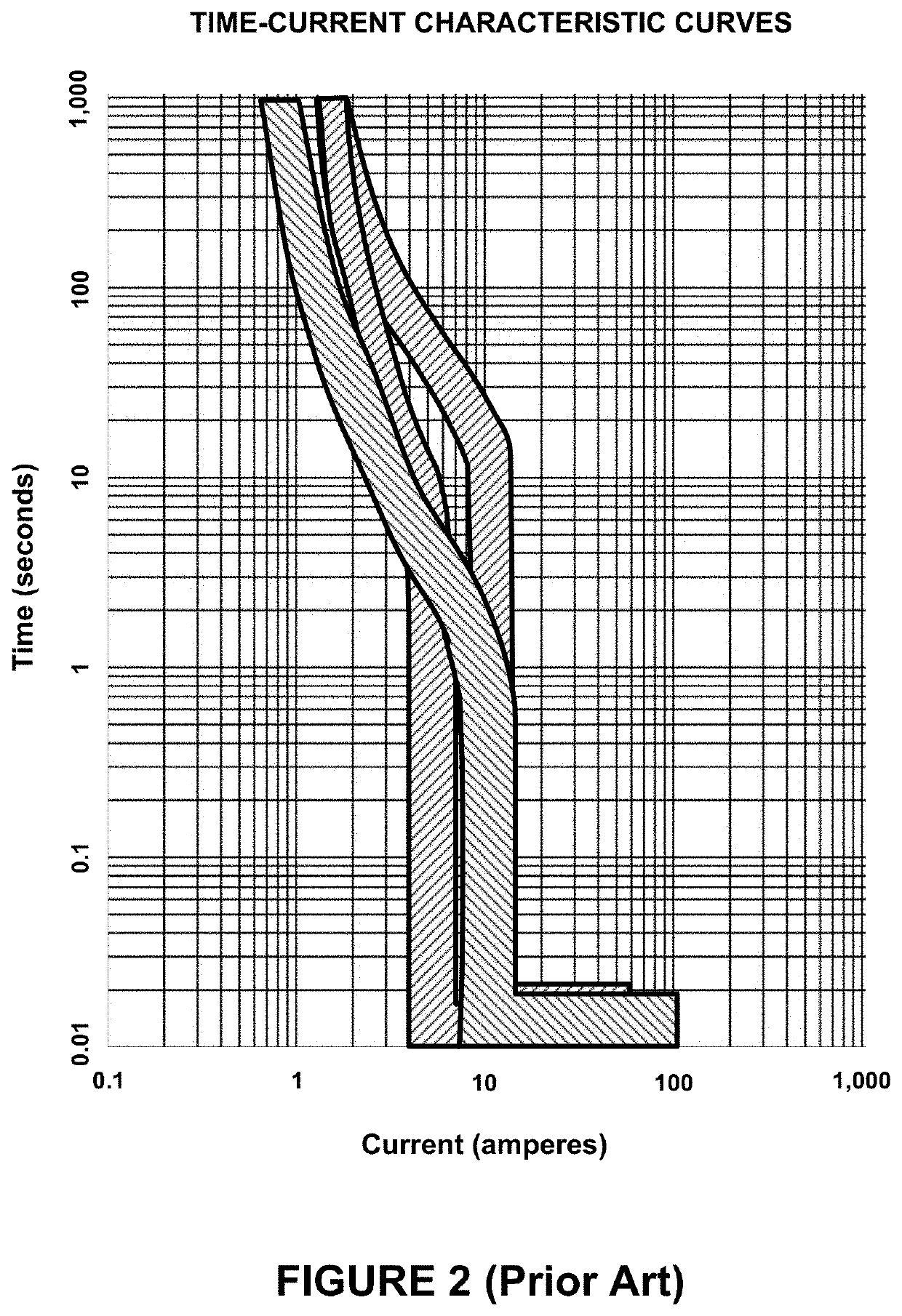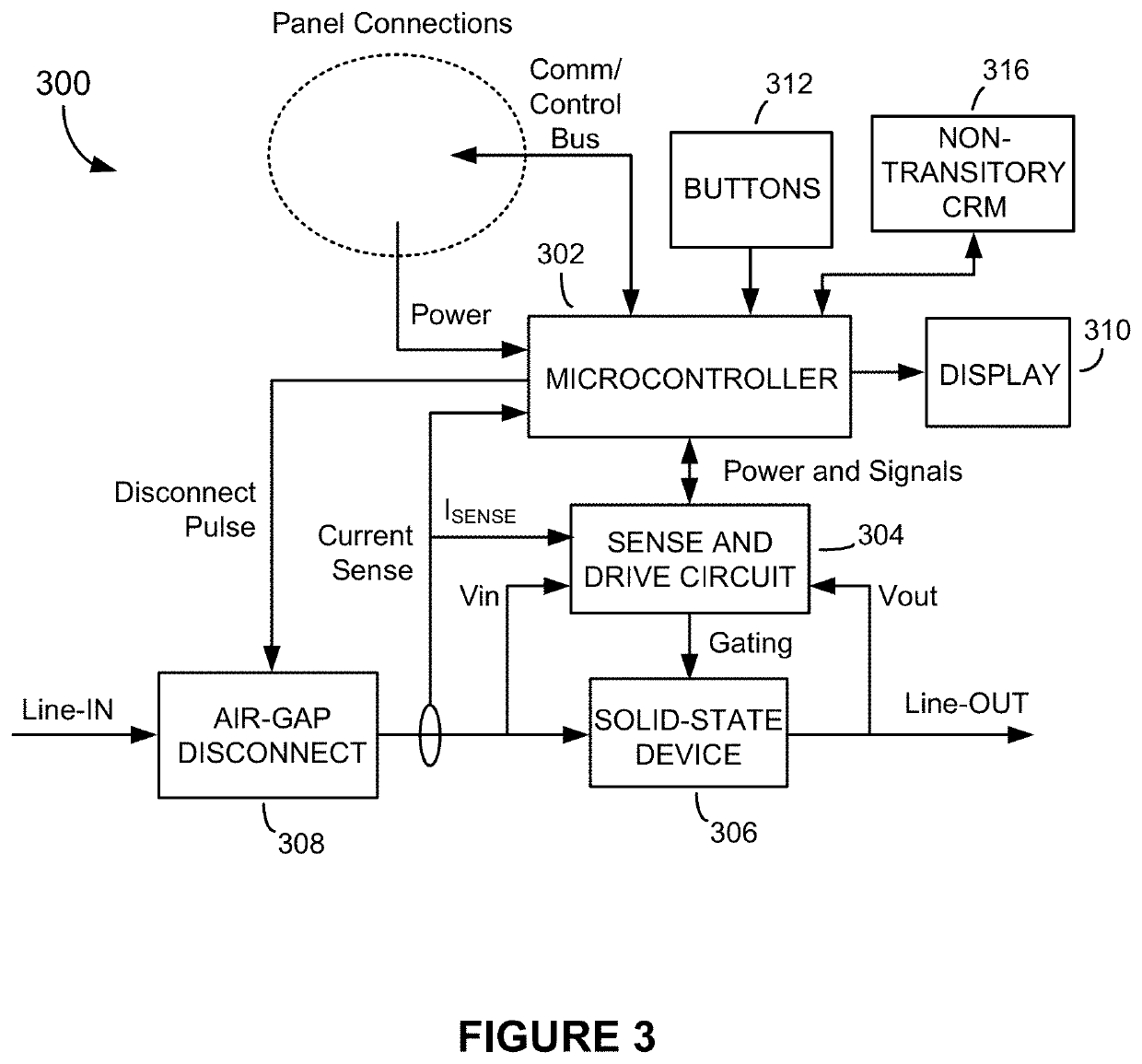Hybrid air-gap / solid-state circuit breaker
a solid-state circuit breaker and hybrid technology, applied in the direction of protective switch operation/release mechanism, protective switch details, polyphase induction motor starter, etc., can solve the problems of slow reaction to faults, conventional circuit breakers, and at least several milliseconds
- Summary
- Abstract
- Description
- Claims
- Application Information
AI Technical Summary
Benefits of technology
Problems solved by technology
Method used
Image
Examples
Embodiment Construction
[0026]Referring to FIG. 3, there is shown a drawing depicting a hybrid air-gap / solid-state circuit breaker 300 (also referred to as a “protection device” or “PD” in the detailed description below), according to one embodiment of the present invention. The PD 300 comprises a microcontroller 302; a sense and drive circuit 304; a solid-state device 306; and an air-gap disconnect unit 308. The microcontroller 302, sense and drive circuit 304, and other components of the PD 300 are powered by a direct current (DC) power supplied by one or more local DC power supplies independent of the electrical distribution system in which the PD 300 is configured or from an alternating current (AC) to DC power converter that produces DC power from an AC power source in the electrical distribution system. The solid-state device 306 comprises an electrically controlled solid-state device (or device(s)), such as an insulated gate bipolar junction transistor (IGBT), power metal-oxide-semiconductor field e...
PUM
 Login to View More
Login to View More Abstract
Description
Claims
Application Information
 Login to View More
Login to View More - R&D
- Intellectual Property
- Life Sciences
- Materials
- Tech Scout
- Unparalleled Data Quality
- Higher Quality Content
- 60% Fewer Hallucinations
Browse by: Latest US Patents, China's latest patents, Technical Efficacy Thesaurus, Application Domain, Technology Topic, Popular Technical Reports.
© 2025 PatSnap. All rights reserved.Legal|Privacy policy|Modern Slavery Act Transparency Statement|Sitemap|About US| Contact US: help@patsnap.com



